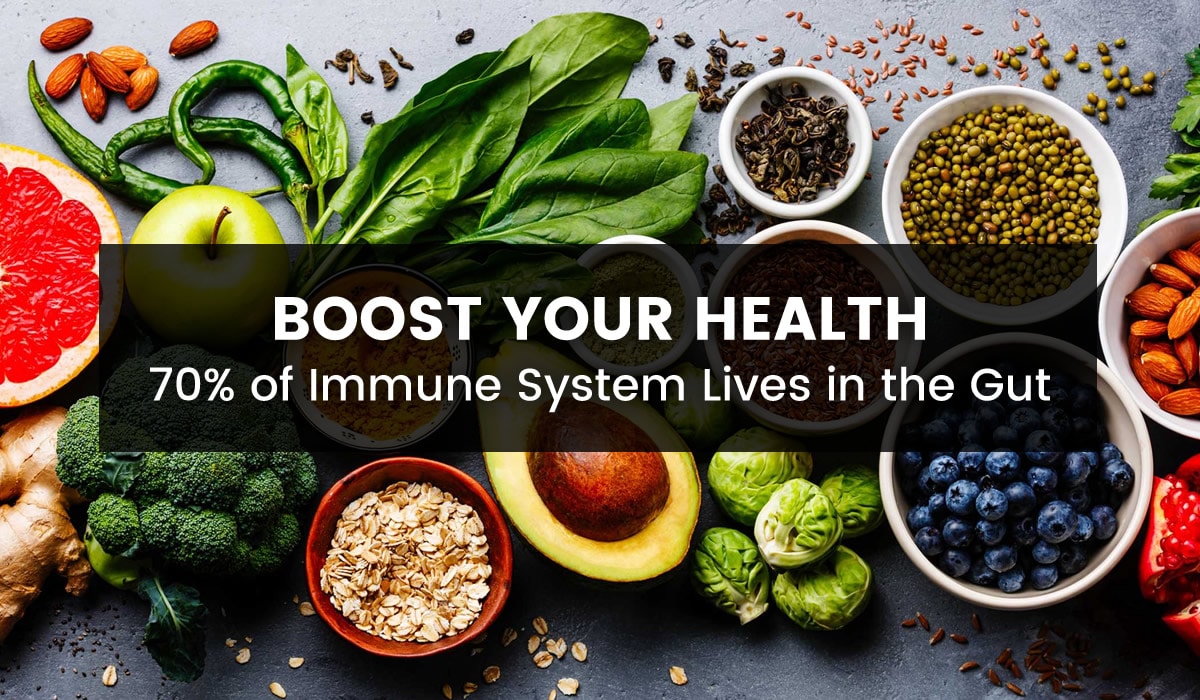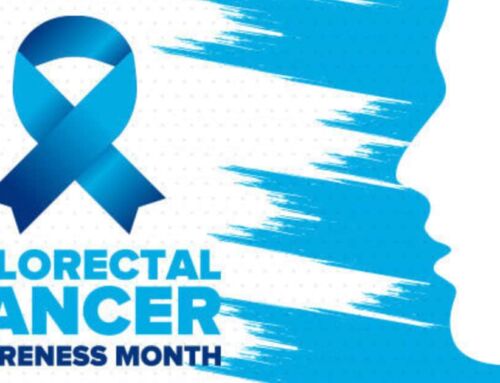Having a robust immune system is more important than ever as we continue to deal with this global pandemic. Thankfully, the vaccine rollout gives us a glimpse of the light at the end of the tunnel.
Remarkably, 70% of your immune system lies in your gut. Optimizing your immune system can help to protect you from harmful viruses. And the best way to do that is by improving your gut health.
This article will first discuss how your gut microbiome protects you from disease. We’ll then outline how to boost your immune system in the gut. Lastly, we’ll discuss signs of an unhealthy gut and when you should see a gastroenterologist.
Gut Microbiome and Immune Response
Trillions of microorganisms live inside your gut. This collection of microorganisms is your gut microbiome. Your gut contains both beneficial and harmful microorganisms, including:
- Bacteria
- Viruses
- Fungi
- Archaea
Maintaining a balance between beneficial and harmful microorganisms keeps you healthy. If your gut becomes imbalanced, your risk for specific diseases increases.
Over time, an imbalanced gut can lead to chronic inflammation, oxidative stress, and insulin resistance. This can result in the development of diseases such as:
- Irritable bowel syndrome (IBS)
- Inflammatory bowel disease (IBD)
- Ulcerative colitis
- Crohn’s disease
- Colon cancer
- Diabetes mellitus
- Cardiovascular disease
The microorganisms in your gut play an essential role in many bodily processes. Your gut microbiome is responsible for the following functions:
- Reducing inflammation
- Maintaining homeostasis
- Metabolizing proteins and carbohydrates
- Creating essential vitamins
Your gut microbiome changes depending on many factors, including:
- Diet
- Weight
- Physical activity
- Age
- Medications
By making healthy choices, you can diversify your gut microbiome and reduce your risk for certain diseases.
How to Boost Your Immune System
If you want to strengthen your immune system, the best way to do so is to maintain a healthy gut. Below, we’ll discuss how to boost your immune system by making diet and lifestyle changes.
Eat Gut-Healing Foods
The best gut-healing foods are plant-based foods. This is because foods that come from plants contain beneficial properties such as:
- Vitamins
- Minerals
- Fiber
- Polyphenols
- Prebiotics
- Probiotics
Research shows that plant-based foods improve the health of your gut microbiome. This occurs because of indigestible carbohydrates like fiber and prebiotics act as food for microorganisms in the gut. This leads to the production of short-chain fatty acids, which results in:
- Improved insulin sensitivity
- Weight regulation
- Reduced inflammation
- Reduced gut permeability
The CDC reports that a diet low in fruits and vegetables and high in processed meats puts you at an increased risk for colon cancer. You can drastically reduce your risk for colon cancer and other diseases by following a plant-based diet.
Maintain a Healthy Weight
Maintaining a healthy weight can strengthen your immune system. Research shows that a high waist circumference can lead to an altered immune response. This may result in cellular mutations that increase your risk of colon cancer.
Obesity is also associated with many other health consequences, including:
- Death
- High blood pressure
- Coronary heart disease
- Stroke
- Osteoarthritis
- Sleep apnea
- Mental illness
- Pain
An imbalanced gut microbiome is typical in overweight people. But research shows that you can restore the balance between microorganisms by making dietary changes.
Get Regular Physical Activity
Getting regular physical activity can help you regulate your weight and prevent complications related to obesity. Research shows that exercise positively influences your gut microbiome. Regular aerobic exercise can help in the diversification and growth of beneficial microorganisms in the gut.
Other benefits of regular physical activity include an improvement in:
- Blood flow
- Muscle contraction
- Insulin levels
- Endothelial function
- Frequency of bowel movements
- Weight loss
Stop Smoking
Smoking modifies your gut microbiome and makes you more susceptible to disease. The microorganisms in smokers have an impaired defense against pathogens. Tobacco suppresses your immune system by decreasing the activity of immune cells. This results in an increased risk for diseases such as:
- Chronic obstructive pulmonary disease
- Asthma
- Inflammatory bowel disease (IBD)
- Ulcerative colitis
- Crohn’s disease
- Cancer
Quitting smoking can boost your immune system and reduce your risk of infection.
Signs of an Unhealthy Gut
If you experience persistent digestive symptoms that don’t go away or worsen over time, it’s a sign that your gut microbiome might be out of balance.
Signs of an unhealthy gut include:
- Abdominal pain
- Bloating
- Blood in the stool
- Constipation
- Diarrhea
- Weight loss
Some digestive symptoms may be a result of an underlying medical condition. If your symptoms don’t resolve within a few days, you should see a gastroenterologist to determine the cause of your discomfort.
An unhealthy gut can compromise your immune system and make you more prone to disease. Fortunately, it’s possible to restore the balance between beneficial and harmful microorganisms in the gut.
If you want to achieve optimal digestive health, you can schedule an appointment online or call our office at 210-6615-8308.






